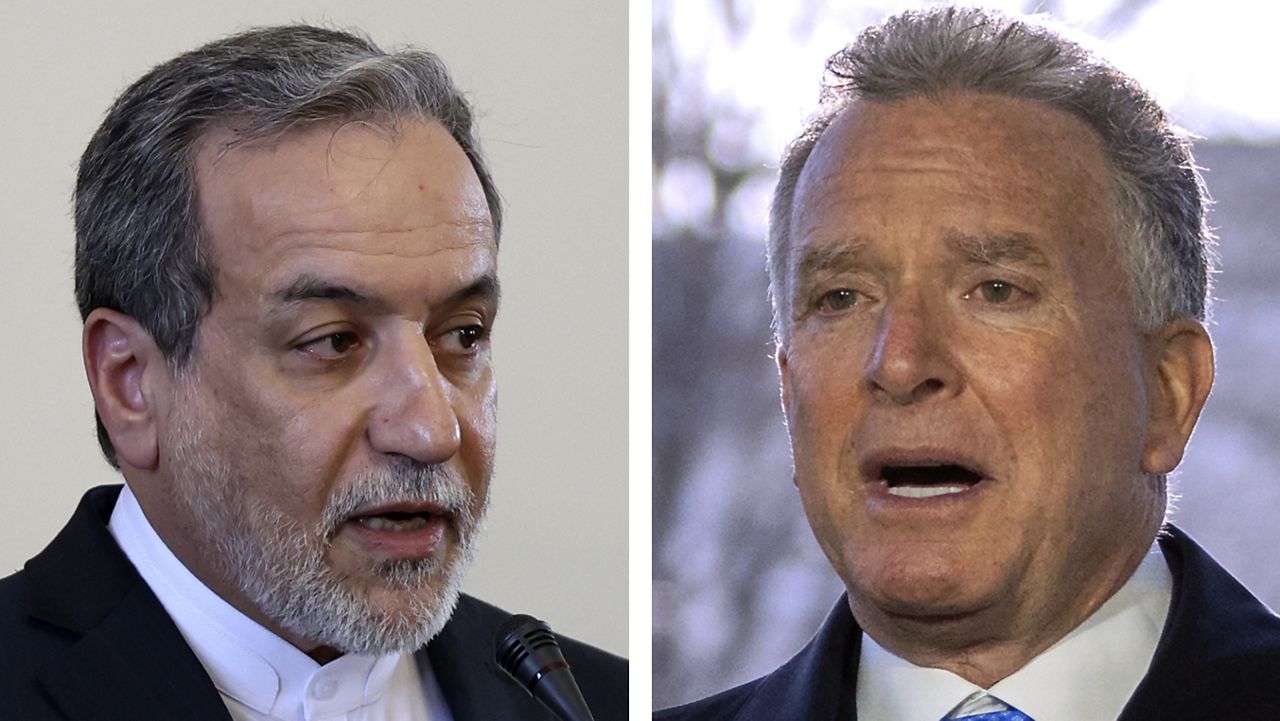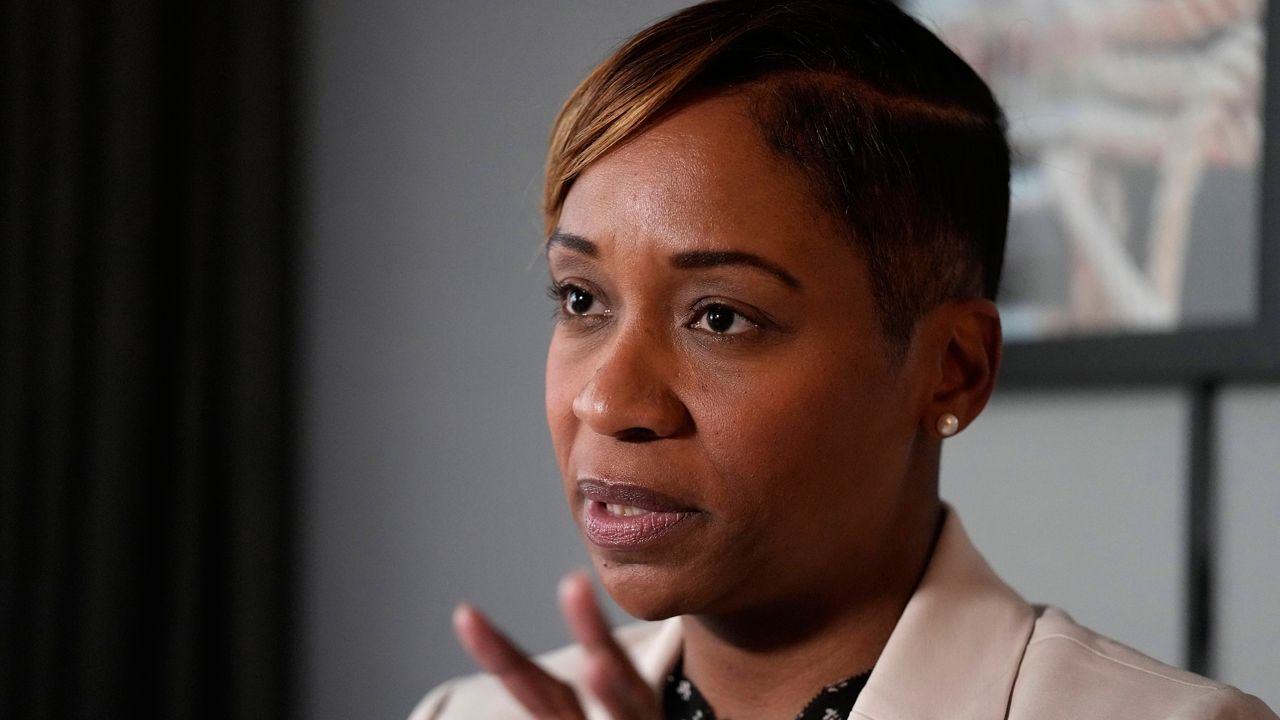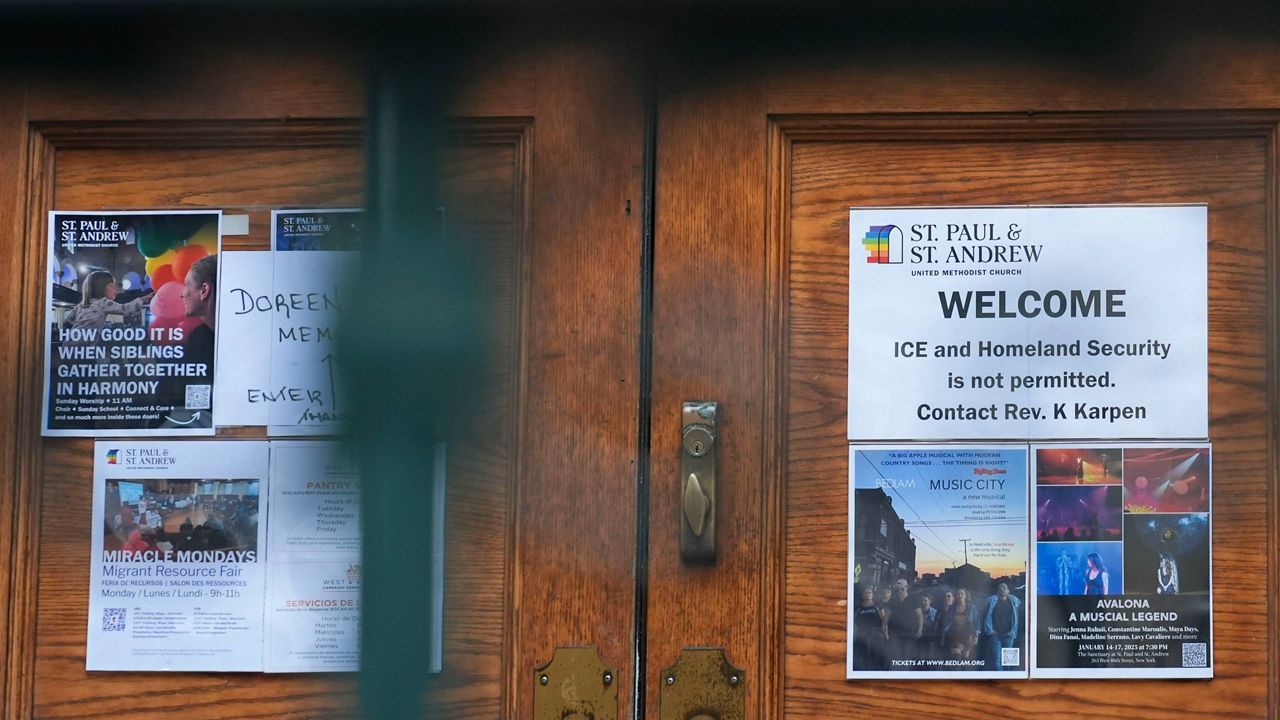Senate Democrats pushed Tuesday for legislation to strengthen ethics rules for Supreme Court justices while Republicans accused Democrats of continuing a campaign to delegitimize the conservative-majority court.
What You Need To Know
- Senate Democrats pushed Tuesday for legislation to strengthen ethics rules for Supreme Court justices while Republicans accused Democrats of continuing a campaign to delegitimize the conservative-majority court
- The Judiciary Committee hearing was held in response to revelations that billionaire conservative donor Harlan Crow over 20 years paid for private flights and luxury vacations for Justice Clarence Thomas, who did not disclose the travel
- Chief Justice John Roberts was invited to testify Tuesday but declined, writing in a letter that doing so would be “exceedingly rare, as one might expect in light of separation of powers concerns and the importance of preserving judicial independence"
- Democrats called for ethics legislation for the Supreme Court, touching off a lengthy debate about whether Congress has the power to set internal rules for another branch of government
The Judiciary Committee hearing was held in response to revelations that billionaire conservative donor Harlan Crow over 20 years paid for private flights and luxury vacations for Justice Clarence Thomas, who did not disclose the travel. Thomas also did not disclose that he sold real estate to Crow, an apparent violation of reporting requirements.
In a statement, Thomas defended the trips as “personal hospitality from close personal friends” who had no business before the court. He added he had previously sought guidance from colleagues and other federal judges and was told he did not have to disclose the travel.
Thomas also reportedly believed he did not have to disclose the 2014 real estate sale because he lost money on the deal but is amending his financial disclosure forms to include it.
“It is critical to our democracy that the American people have confidence that judges cannot be bought or influenced and that they're serving the public interest, not their own personal interest,” said Sen. Dick Durbin, D-Ill., the committee’s chairman.
Chief Justice John Roberts was invited to testify Tuesday but declined, writing in a letter that doing so would be “exceedingly rare, as one might expect in light of separation of powers concerns and the importance of preserving judicial independence.”
He included with his letter a statement of ethics principles and practices “to which all of the current Members of the Supreme Court subscribe.”
Durbin said he was “troubled” by Roberts’ suggestion that testifying might infringe upon the separation of powers.
“In fact, answering legitimate questions from the people's elected representatives is one of the checks and balances that helps preserve the separation of powers,” the Illinois Democrat said.
The chairman also called the ethics guidelines Roberts provided “an extraordinary document, not in a good way.”
“It makes clear that while the justices are fine with consulting with certain authorities on how to address ethical issues, they do not feel bound by those same authorities,” Durbin said.
Democrats called for ethics legislation for the Supreme Court, touching off a lengthy debate about whether Congress has the power to set internal rules for another branch of government.
Republicans pushed back on the idea, argued that left-leaning justices have engaged in similar behavior as Thomas and accused Democrats of attacking the Supreme Court over rulings they did not like.
“We can talk about ethics, and that's great,” said Sen. Lindsey Graham of South Carolina, the committee’s top-ranking Republican. “But we're also going to talk about today of a concentrated effort by the left to delegitimize this court and to cherry-pick examples to make a point.”
Among their examples, Republicans repeatedly cited remarks Sen. Chuck Schumer, D-N.Y., now the Senate majority leader, made during a 2020 abortion rights protest outside the Supreme Court in which he called Justices Neil Gorsuch and Brett Kavanaugh out by name and said: “You have released the whirlwind, and you will pay the price. You won’t know what hit you if you go forward with these awful decisions.”
Some interpreted Schumer’s remarks as a threat. The senator later said he regretted his choice of words but was not making a threat.
Republicans also brought up Thomas’ bitter confirmation hearings in 1991, in which he was faced allegations that he sexually harassed Anita Hill, a former adviser to him at the Equal Employment Opportunity Commission. Thomas famously called the hearings a “high-tech lynching.”
“It is sad to see 30 years later this committee is again engaged in the same despicable tactics,” said Sen. Ted Cruz, R-Texas.
Durbin argued that the Supreme Court should have “a code of conduct with clear and enforceable rules.”
“Let's be clear: Congress not only has the authority to legislate in this area but the responsibility,” he said.
Some of the witnesses testifying agreed.
Jeremy Fogel, a retired federal judge, told the committee: “Too many Americans already think that the justices decide cases based on their political preferences and alliances rather than the law. A lack of clarity about the justices’ ethical obligations only feeds that perception.”
Kedric Payne, vice president and senior director of ethics at the Campaign Legal Center, said the Supreme Court has “the lowest ethical standards in government.”
He noted that the court does not have an internal ethics body, investigations into misconduct are extremely rare and the court has no binding code of conduct. He also criticized the court’s lack of transparency into privately sponsored travel and decisions regarding recusals.
And Amanda Frost, a law professor at the University of Virginia, said the Constitution delegated that Congress establish rules for the court, which it first began doing more than 230 years ago.
“To claim that Congress lacks that authority is to ignore the Constitution's text and structure as well as the this long-standing practice,” she said.
But Michael Mukasey, who served as attorney general under President George W. Bush and also was a federal judge, disagreed, arguing the Constitution’s separation of powers provision gives the Supreme Court the sole responsibility to set its ethics rules.
“If the public has a mistaken impression that the integrity of the court has been damaged, the fault for that lies with those who continue to level unfair criticism at the court and its justices,” Mukasey said.
Thomas Dupree Jr., an appellate and constitutional lawyer, said bills that would create judicial panels or designate an ethics officer to investigate complaints would set a dangerous precedent.
That “would damage and debase the institution by encouraging frivolous and politically motivated attacks on the courts integrity,” said Dupree, a partner at Gibson, Dunn & Crutcher in Washington. “If you don't like the outcomes of particular cases, well, attack the ethics of the justice with whom you disagree and force them to post your accusations on their website.”
Ryan Chatelain - Digital Media Producer
Ryan Chatelain is a national news digital content producer for Spectrum News and is based in New York City. He has previously covered both news and sports for WFAN Sports Radio, CBS New York, Newsday, amNewYork and The Courier in his home state of Louisiana.










